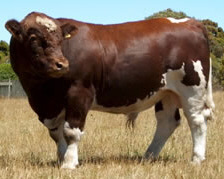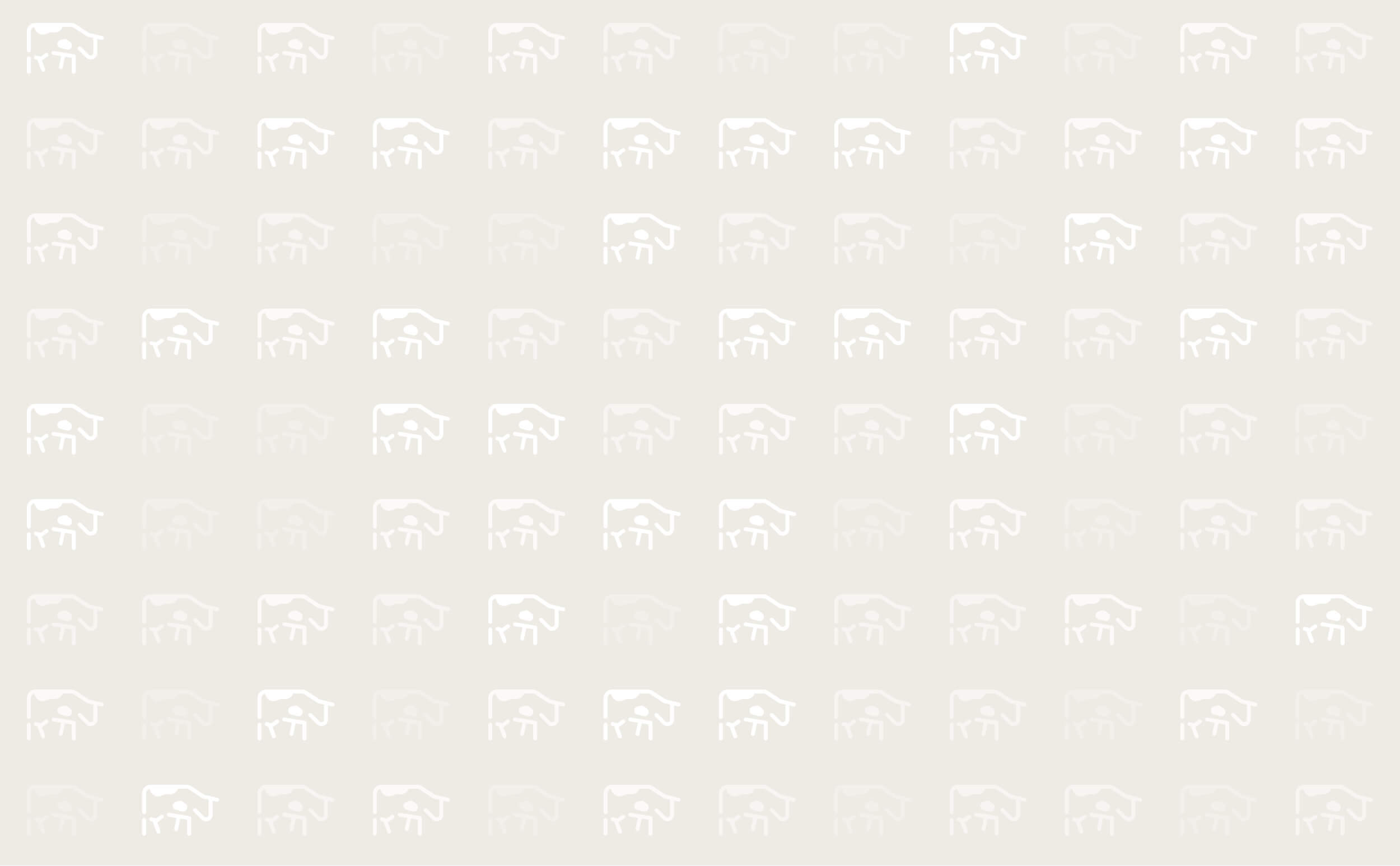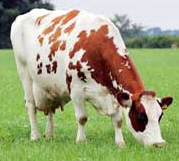



Maine-Anjou (Rouge des Prés)
History
The Maine-Anjou breed (which is now called Rouge des Prés) originated in the northwestern part of France. This area is excellent for beef production as it has both grassland and tillable land.At the beginning of the 19th Century, the cattle in this region were large, well-muscled animals with light red coats spotted with white.
 Photo courtesy of West Inlet Maine-Anjou, http://www.beachsideretreat.com/maineanjou.html |
In 1839 the Count de Falloux, a landowner, imported Durham cattle from England and crossed them with the Mancelle. The cross was extremely successful, and by 1850 Durham-Mancelle animals were winning championships at the French agricultural fairs. In 1908 the Society of Durham-Mancelle Breeders was formed at Chateau- Gontier in the Mayenne district. In 1909 the name was changed to the Society of Maine-Anjou Cattle breeders, taking the name from the Maine and Anjou river valleys.
Characteristics
The Maine-Anjou is traditionally red with white markings on the head, belly, rear legs and tail, but today they are more solid in colour pattern with black, red, black and white being the popular choice.Bulls weigh approximately 2000-2500 lbs and females 1400-1600 lbs.
The Maine-Anjou breed excels in performance/feed efficiency, disposition and has superb carcass traits.
 Photo courtesy of West Inlet Maine-Anjou, http://www.beachsideretreat.com/maineanjou.html |
Statistics
Comparative
Distribution
Today the Maine-Anjou can be found in many countries including America, Canada, Australia, New Zealand, the UK and France.References (the above information was cited from the following sites)
www.maine-anjou.ca
www.ansi.okstate.edu
www.beachsideretreat.com


